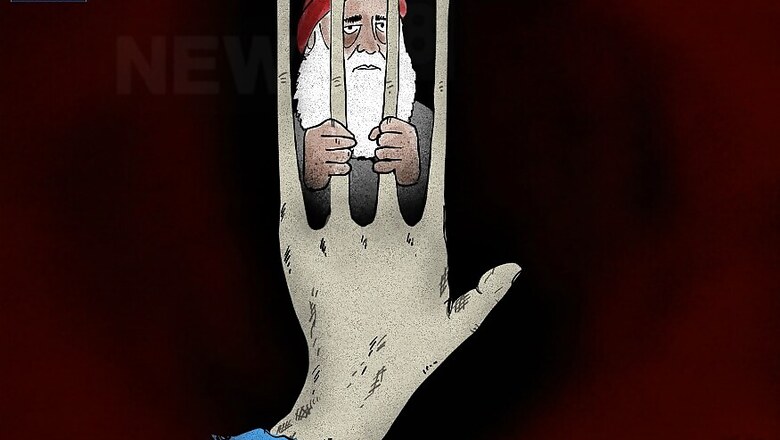
views
The conviction of Asaram may have engendered a moment of quiet satisfaction for Prime Minister Narendra Modi. It was under his government in Gujarat that political patronage to the self-styled godman was withdrawn. This triggered the fall of Asaram’s 'evil empire'.
The BJP legislators among Asaram’s followers — and there are several — dare not speak out in support of the godman. Those, like Uma Bharti and Prabhat Jha, who had publicly defended him in 2013 after he was arrested on charges of rape, were cautioned against doing so.
The godman's empire began to unravel in 2008 after two boys went missing from his ashram in Gujarat’s Motera, where he had started out nearly three decades earlier. The incumbent Modi government wasted no time in appointing a Commission of Inquiry.
Party sources say Modi had warned the Vishwa Hindu Parishad (VHP) not to support Asaram in any public forum. He was particularly suspicious of the godman's son, Narayan Sai, who would later be accused of rape.
Attempts were apparently made by Asaram's supporters to bring about a patch-up with Modi, but the latter was adamant. An RSS ideologue is said to have advised the godman to pack up his operations and embark on a “spiritual quest” to the Himalayas.
In the course of the inquiry, allegations of black magic and financial wheeling-dealing emerged, damaging the godman's image. He was rendered vulnerable and other instances of children losing their lives at his gurukuls further eroded his stature. The state confiscated various tracts of land under the control of Asaram's ashrams and family.
The Asaram case is a classic example of the synergy between politicians and godman, who feed off each other. From 1980 onwards, the godman was patronised by the Congress and then by the BJP, probably because he had acquired a large following among the disadvantaged sections by distributing freebies.
Through his TV sermons, Asaram also reached out to the middle classes. He was allotted land for his ashrams and gurukuls in Gujarat and Madhya Pradesh and feted by party leaders from both states. Investigative agencies have estimated his wealth — in land and various financial instruments — at Rs 10,000 crore.
Such was Asaram's hubris that in 2012 he warned the Modi government not to mess with him, unaware that he had already scripted his downfall.
For politicians, a spiritual leader is a valuable ally because he confers a certain political legitimacy — at least in the eyes of the voters, who prefer a god-fearing politician to an agnostic.
In these times of increasingly religiosity, having a godman in one’s corner is almost a necessity — witness politicians of all hues paying homage at the caste-based mutts of Karnataka these days.
But when the godman's spirituality is impugned, he is no longer an asset. In fact, he becomes a liability.
Even if the discredited godman continues to enjoy a considerable following, as do Asaram and Gurmeet Ram Rahim, the politician dare not support him openly for fear of losing the confidence of his other constituents.
That said, many politicians have implicit belief in godmen. Just before an election, they high-tail to astrologers, temples and gurus and perform yagyas.
The godman's cloak of invulnerability depends largely on his political network, which gives him access to the power of the state. The guru's victims rarely have the courage to take him on, for fear of inviting reprisals from his followers, while law enforcement agencies look the other way.
One example is that of Raghaveshwara Bharthi, seer of the Ramachandrapura Mutt in Karnataka's Shimoga district. The singer who had accused him of repeated sexual assaults was arrested along with her husband and in-laws, even before she could file a formal complaint. A chargesheet was filed in 2015, but a number of judges recused themselves from hearing the case. It was eventually set aside in 2016.
It is only when the godman is stripped of his protective cover by the political dispensation or by the judiciary that he becomes vulnerable to the criminal justice system. As did Asumal Sirumalani aka Asaram Bapu.
(The writer is a senior journalist. Views are personal)
















Comments
0 comment